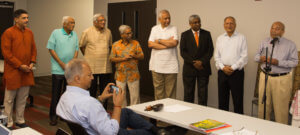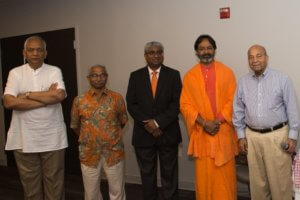Advaita Vedanta
Learning Outcome:
- Effectively analyze the nature of the human problem and the scope of knowledge and action as means (sadhana) for solving it.
- Understand Advaita Vedanta’s epistemology and its relevance to the human problem.
- Gain clarity on the Advaita view of reality and non-duality.
- Learn the prerequisites for the knowledge of Advaita and the means to gain them.
- Recognize and analyze the differences between some modern and ancient interpretations of Advaita. and the traditional view of Sankara.
The vision of Advaita Vedanta is that one, non-dual consciousness is the content of you, the world, and the cause of the world. It is both immanent and transcendent and can be known by a human being who has equipped himself/herself with the necessary prerequisites. This knowledge, contained in the Upanisads, releases the individual from the problem of human suffering.
In this course we will explore the nature and substance of this liberating knowledge through key dialogues in some of the major Upanisads, using as a guide the commentary of Sankara, Advaita’s seminal exponent.
We will also explore the qualifications required for this knowledge and the prescribed means for acquiring them. In conclusion, we will examine some competing views on Vedanta, including modern interpretations. The course is designed to introduce in a comprehensive but accessible way, the vision of Advaita Vedanta.
Required/Elective: Required
Prerequisites: Must have completed or been concurrently enrolled in Orientation in Hindu Studies
Faculty/Instructor: Swamini Agamananda Saraswati
Area of Study: Hindu Studies Foundation
Start Date: July 17, 2022
End Date: September 18, 2022
Day: Sunday
Time: 09:00 am EST – 12:00 pm EST (6.30 pm IST – 9.30 pm IST)
Quarter Offered: Summer 2022












